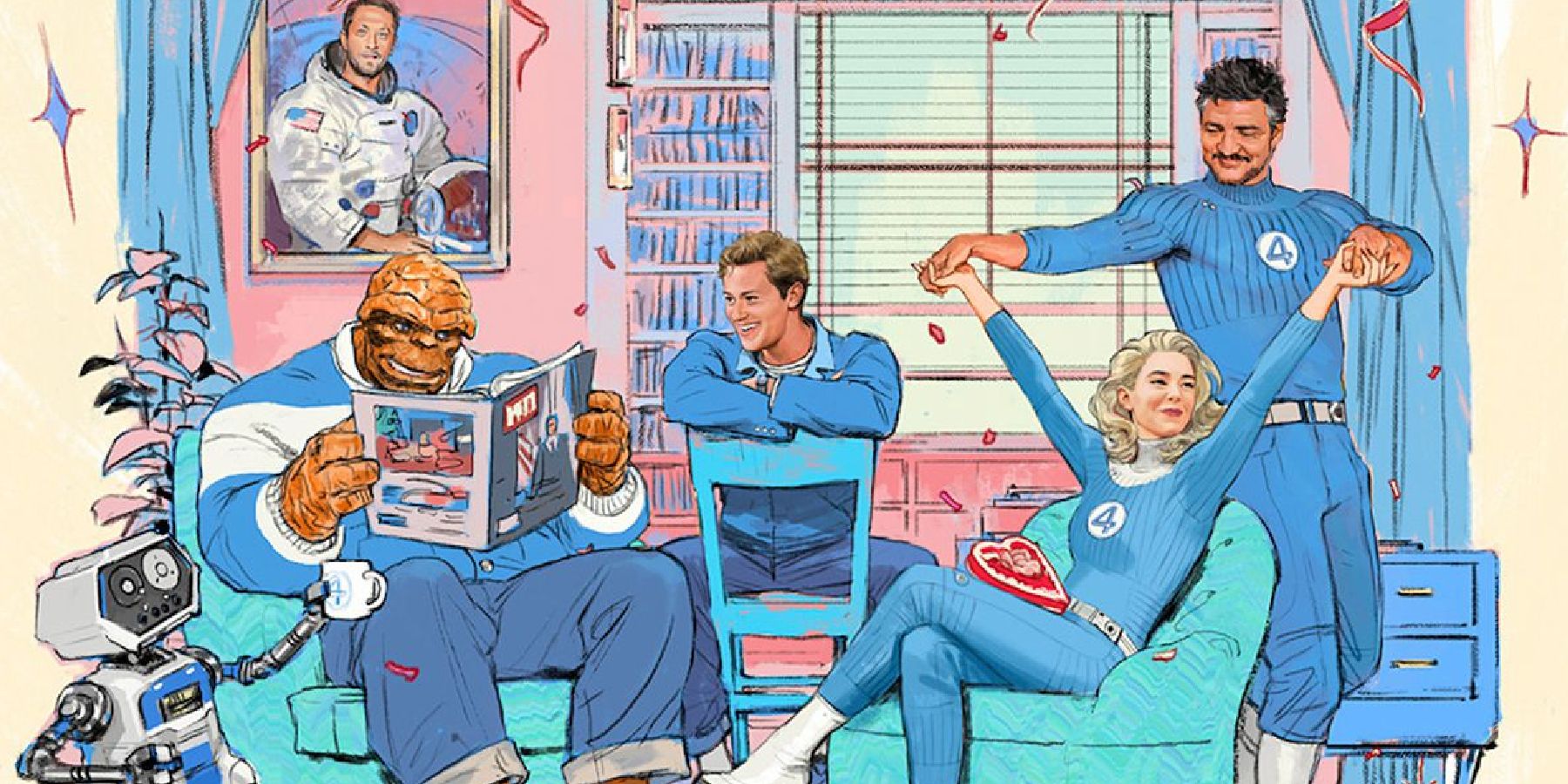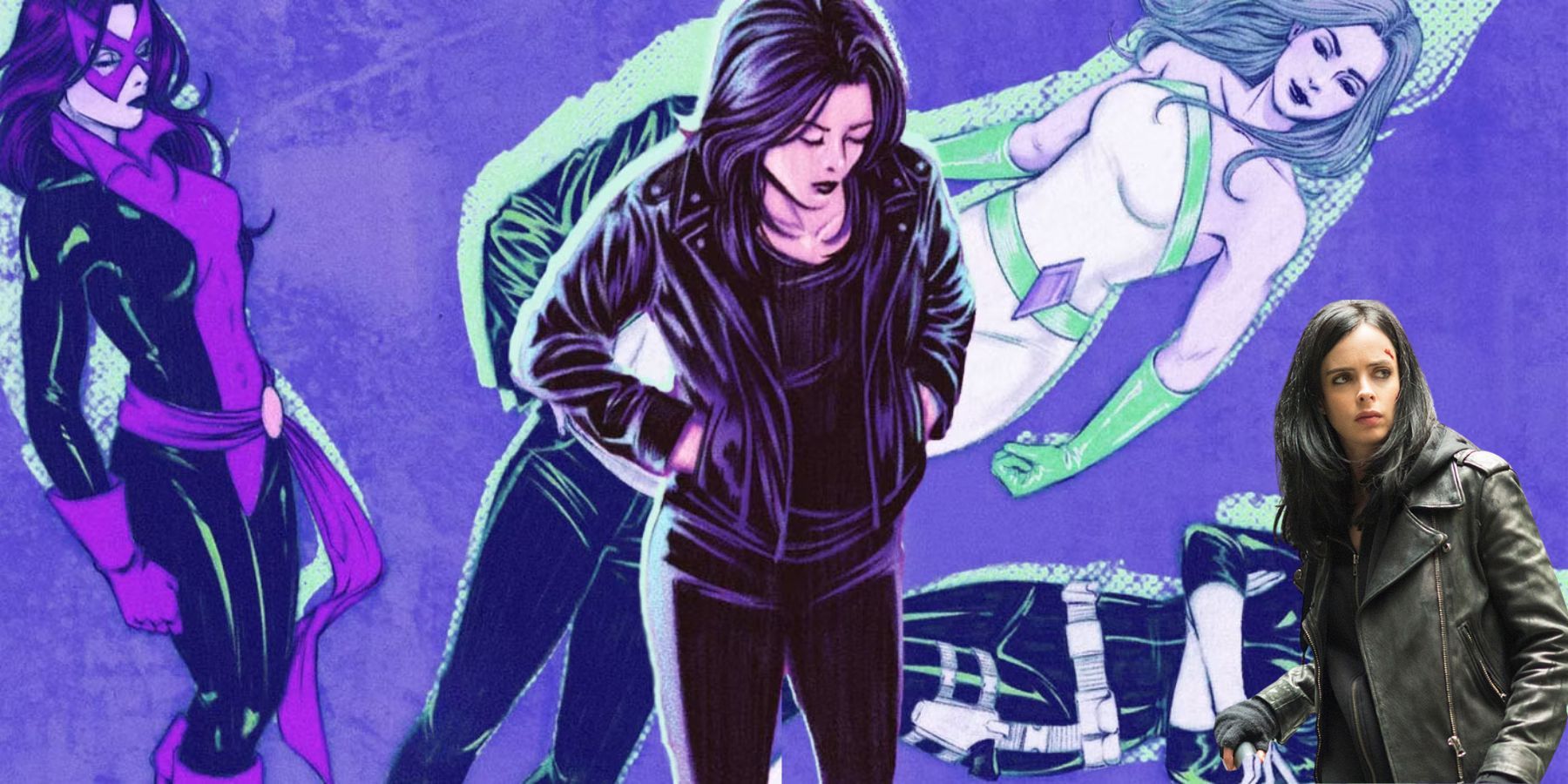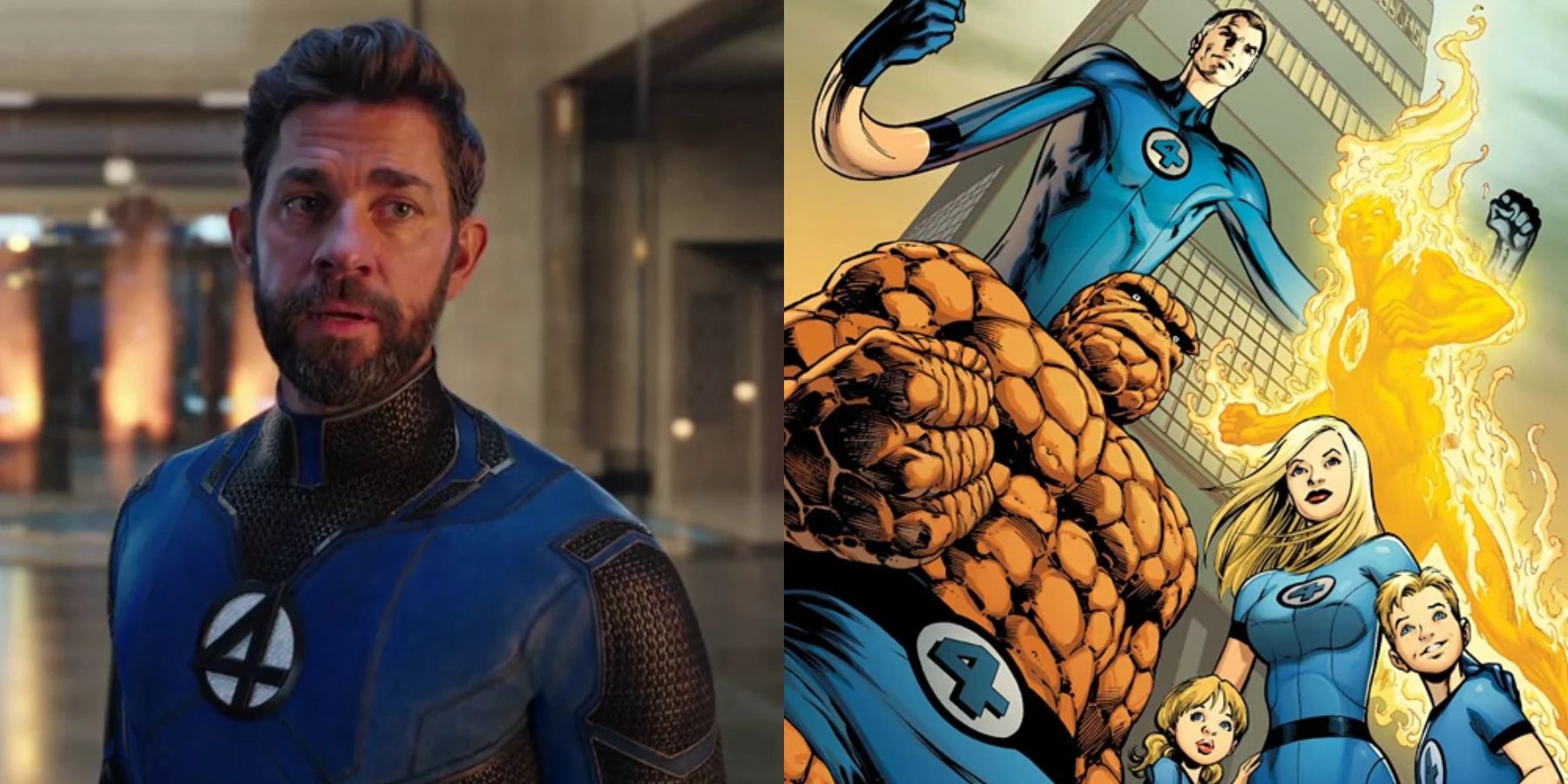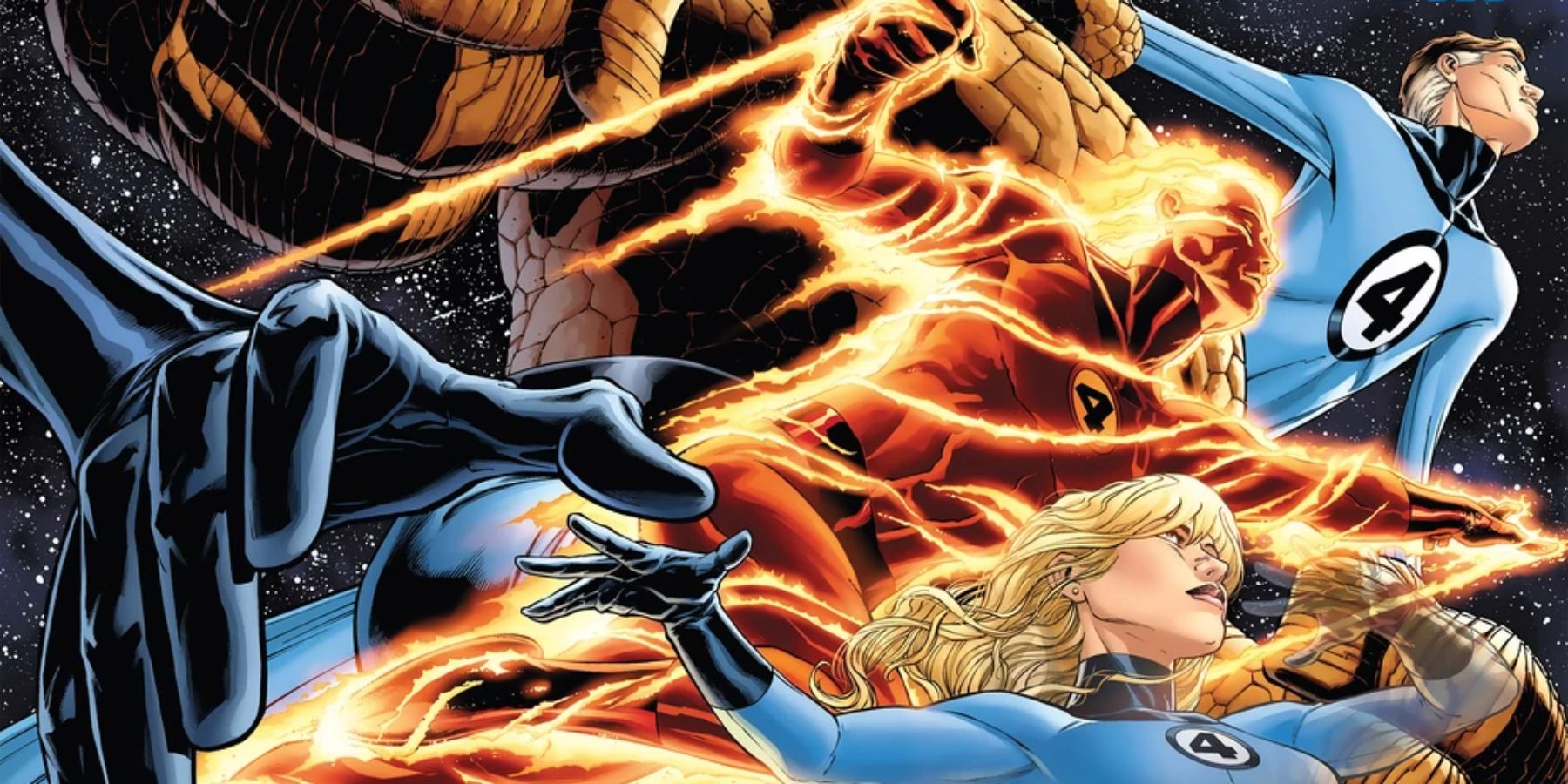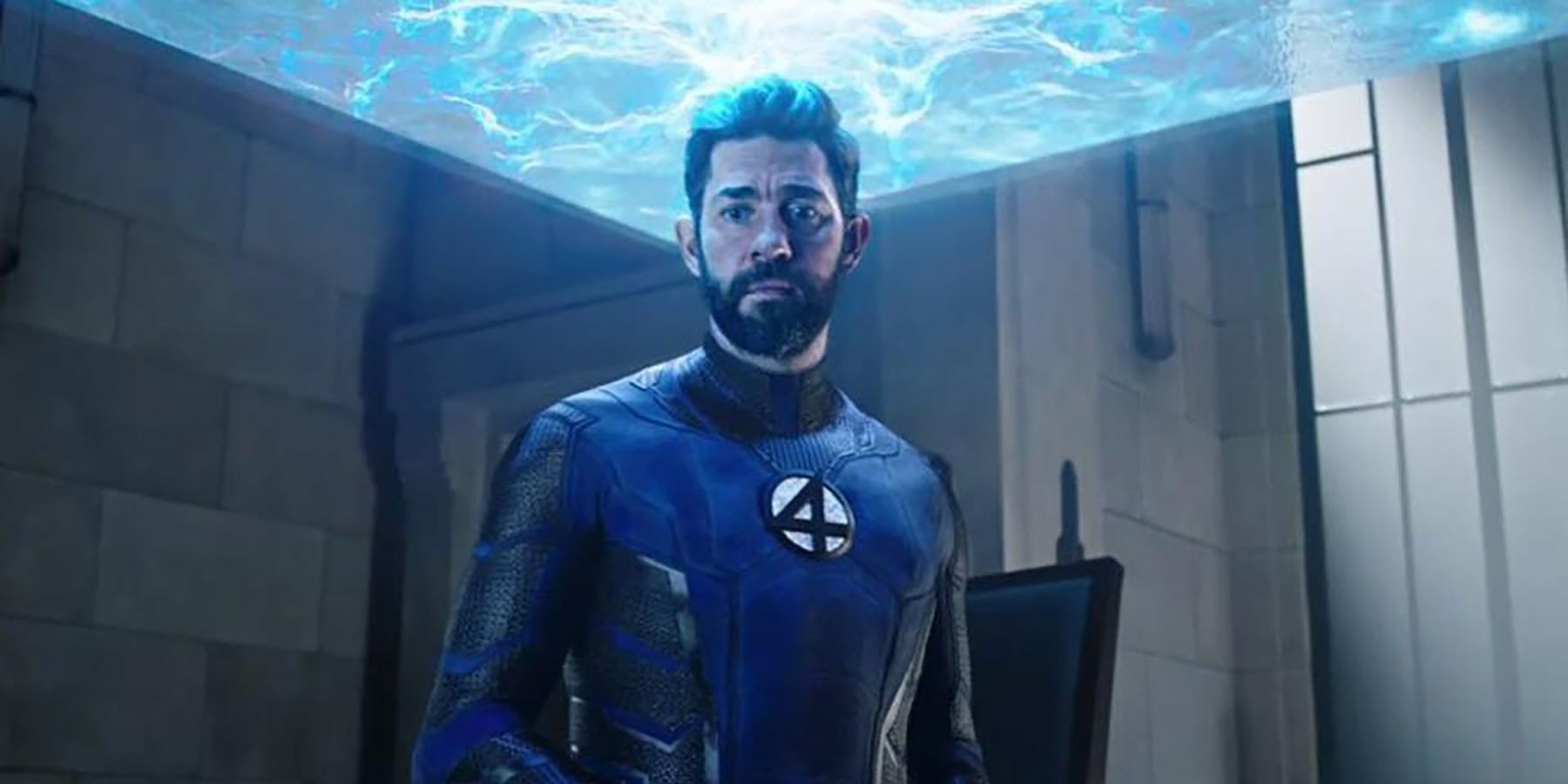The Fantastic Four are some of Marvel Comics’ most prolific characters, setting the tone for the entire Marvel Universe back in the 1960s with Stan Lee and Jack Kirby’s landmark run on their original comic series. But despite their major place in superhero history, the members of Marvel’s First Family have been vastly overshadowed by other characters in recent decades, due in no small part to their less-than-stellar film adaptations.
The original Fantastic Four movie and its 2007 sequel may seem accurate to the comics on the surface — and sure enough, Chris Evans and Michael Chiklis were perfectly cast as the Human Torch and the Thing — but they largely lacked the heart and nuance that made the FF into icons. The much-maligned 2015 reboot went for a different approach with a younger cast and a darker tone, but the end result was practically unrecognizable from the source material. However, all signs point to the MCU making things right with a much more comic-accurate adaptation, which seems like it might be taking cues from one of the greatest Fantastic Four stories ever told.
Solve Everything
For decades, the Fantastic Four comics struggled to recapture the magic of the original Lee-Kirby era. But in 2009, everything changed when Jonathan Hickman took over as writer. If that name sounds familiar, fans may recognize him as the writer behind the 2015 Secret Wars crossover, which is widely theorized to be the basis for the MCU’s next saga-ending epic in the vein of Infinity War and Endgame. However, Hickman’s Secret Wars was years in the making, and the long road leading their starts with the FF.
Hickman’s first Fantastic Four arc, titled “Solve Everything,” focuses on Mr. Fantastic, aka Reed Richards, as he encounters a multiversal organization composed solely of his own variants. This Council of Reeds is dedicated to using their combined intellect and resources to make the entire multiverse a better place. They’ve saved countless worlds from hunger and disease, and the Reed of Earth-616 is sorely tempted to join them — even if it means less time with his family. However, it’s eventually revealed that the Council of Reeds has a dark side, and its arrogance could potentially spell disaster for the multiverse.
But in the end, what causes Mr. Fantastic to cut ties with the Council of Reeds is the realization that all of his variants have chosen the Council over their families. None of them even have any children of their own, because they all abandoned Susan before they got the chance to start a family. Once he realizes this, Mr. Fantastic no longer wants anything to do with the Council. Because while he may be a hero, a scientist, and an explorer, he’s also a husband and a father, and those roles are the ones that are most important to him.
Hickman’s Fantastic Four evolves over time into a sprawling cosmic epic involving time travel, interstellar war, Atlantis, Galactus, and the Celestials — and Doctor Doom too, of course. But more than anything else, it’s a story about family, as all great FF stories should be. “Solve Everything” perfectly sets the stage for that, painting a portrait of Mr. Fantastic as a man who’s torn between his lofty ambitions and the people who rely on him, and ultimately chooses the latter. Despite all his power and intellect, it’s his family that gives Reed his strength.
A Kinder, Gentler FF
The family dynamic shared by the team is the heart and soul of the Fantastic Four series, and it’s an aspect that’s been sorely underdeveloped in their previous movies. The initial films were straightforward, arguably even generic superhero movies, with a few strong performances hampered by weak writing. Meanwhile, the 2015 reboot attempted to turn the story into a grounded sci-fi thriller with elements of body horror — a far cry from the comics, to say the least. The MCU’s Fantastic Four needs to depict the team as a family of adventurers, exploring the cosmos in the name of science and discovery. And besides Lee and Kirby themselves, no writer has captured that aspect better than Jonathan Hickman. In fact, it seems as though Marvel Studios may already be laying the groundwork for a Hickman-inspired Fantastic Four adaptation.
While viewers don’t see much of Earth-838’s Reed Richards in Doctor Strange in the Multiverse of Madness, he seems to be a much more empathetic character than past iterations. Previous cinematic portrayals of Reed have emphasized his awkward intellectual side, depicting him as an emotionally distant bookworm — a trap that many past writers have fallen into. However, Krasinski’s Reed feels noticeably warmer from the brief glimpses that audiences do get. When Strange makes a derisive remark at his expense, he chuckles, indicating that he doesn’t take himself too seriously. And more importantly, he’s the only Illuminati member besides Professor X who attempts to reason with Wanda.
If Krasinski’s cameo is any indication, Marvel Studios already understands that Reed’s compassion is just as important as his intelligence. He even references having children of his own: an obvious nod to Franklin and Valeria, who played a major role in Hickman’s run. But of course, it’s too soon to know how closely the Reed of Earth-616 will resemble Krasinski’s portrayal. Recent rumors suggest that a different actor might play Mr. Fantastic in the upcoming FF movie, possibly one younger than Krasinski. As such, Reed may not yet be a father when viewers first meet him on Earth-616.
Even so, it was first reported in 2020 that Disney has registered “Solve Everything Productions” as an LLC — a blatant reference to Hickman’s inaugural storyline. No matter what, it’s clear that Hickman’s work is fresh in the minds of the Marvel Studios crew.
It’s currently impossible to know how much of an inspiration “Solve Everything” will be for the plot of the MCU’s Fantastic Four. Considering the multiverse’s major role in Phase 4, audiences could very well see the Council of Reeds on the big screen. Alternatively, the story could merely serve as a thematic influence, informing a greater focus on family dynamics and sci-fi exploration compared to prior adaptations. Either way, Jonathan Hickman’s run on Fantastic Four has such a prominent place in the history of the franchise that it’d be a bigger surprise if the MCU didn’t take notes from it.


